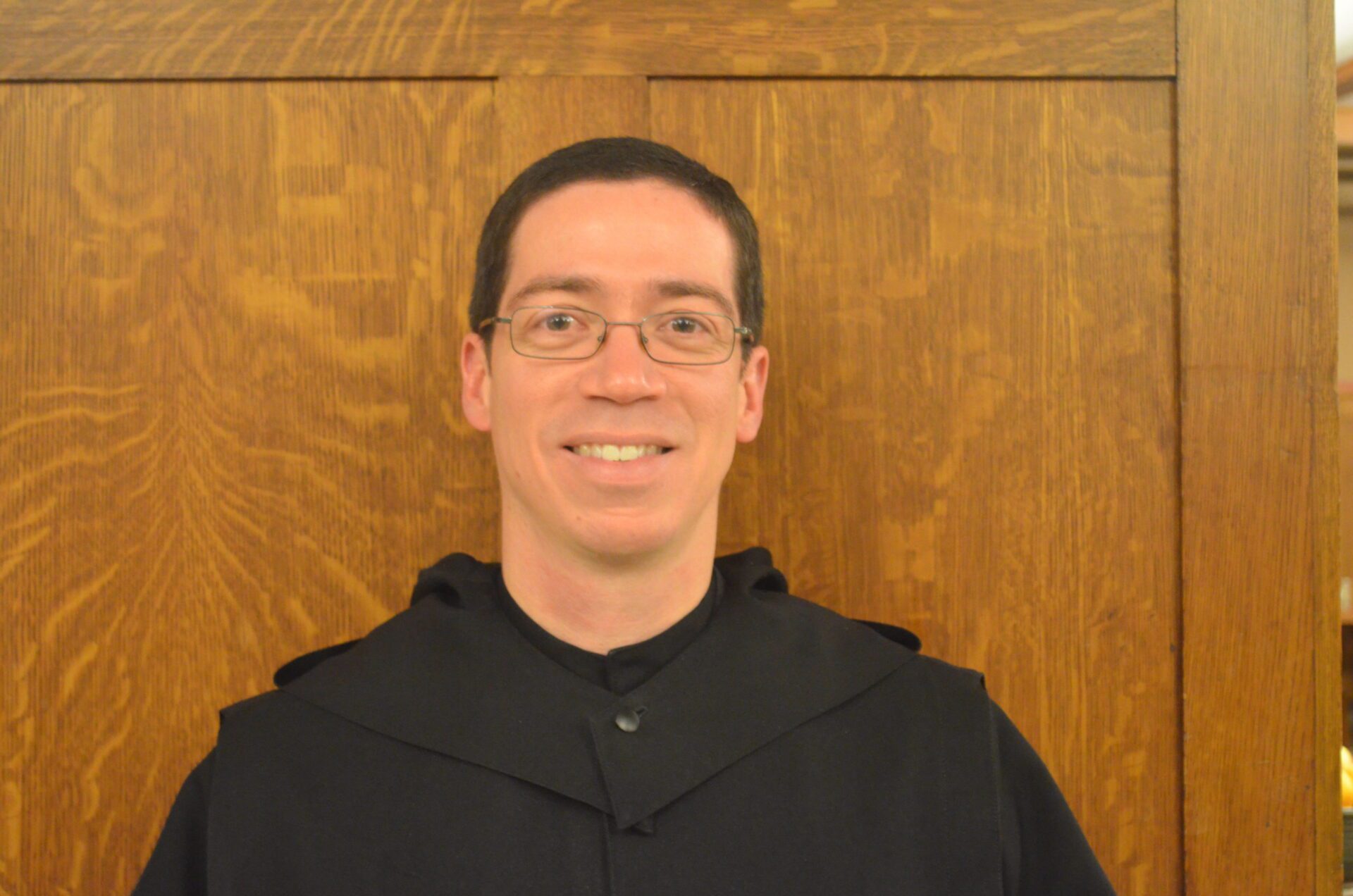Whether you have questions about discernment and vocations or want general information about Belmont Abbey, we invite you to reach out and ask!
Homilies

May 18, 2020
Sixth Sunday of Easter May 17, 2020

The gospel reading the Church gives us today seems very appropriate for this 6th Sunday of Easter, as we approach the celebration of Christ’s bodily Ascension into heaven and the coming of the Holy Spirit at Pentecost. For Christ today speaks about what life will be like for his disciples, once those events have passed. It is also then a description of what life should be like for us now, as Jesus’ disciples.
First, the foundation of our life as Jesus’ disciples is to do what he asks of us. If you love me, you will keep my commandments. Repeated frequently in Scripture is this idea that our love for Jesus and for God is shown, is proven, by our conformity with and our obedience to what Jesus has asked us to do. It is our actions that matter most and define our true love. And it is always good, when speaking of God’s commandments, to remember in context that what God commands us is principally for our own good. God is not interested in manipulating us or forcing us to do anything, unlike the rulers of the earth; rather, God is interested in having us flourish and grow, to be fully alive. Thus, to keep God’s commandments is more than just an indication of loving God, it is an indication of how much we healthily love ourselves, for to fail to keep God’s commandments is a form of hating ourselves. Certainly, one danger with respect to keeping God’s commandments is any tendency to be selective in following God’s commandments, choosing to follow those commandments that we find easy or that are agreeable to our own minds, and neglecting those commandments that we find hard, or with which we disagree. Surely, there are some commandments that are difficult for us in particular, and which we may fail to keep, even repeatedly. As I see it, the challenge in such situations is not to give up, not to cease our efforts, if we fall to get up again, and never to conform ourselves to a willing compromise with not keeping God’s commandment. The mercy of God will never fail us.
Jesus says: I will ask the Father, and he will give you another Advocate to be with you always, the Spirit of truth. I will not leave you orphans; I will come to you. You will see me, because I live and you will live. On that day, you will realize that I am in my Father, and you are in me and I in you… and that you are loved by my Father. There are few passages in Scripture that are as explicitly Trinitarian as today’s gospel. Christ’s Ascension to heaven and the coming of the Holy Spirit make possible the reality for Christians to live with and in the Trinity.
The Holy Spirit is to remain in us always. Never leaving us, we have access to the Spirit always. We can talk to the Spirit in every time and circumstance, turning and receiving grace for timely help. The Spirit is our Advocate and Counselor, pleading for us and interceding for us, and advising us if we take the time to ask and listen. The Holy Spirit, as the Spirit of truth, is the antidote to deception, helping us to see and understand what is real, and revealing to us the very mysteries and depths of God, the knowledge of which will make our hearts more joyful than all the pleasures of the world combined.
After the Ascension, Jesus today admits that he will no longer be with his disciples as during his public ministry. He says, the world will no longer see me. But in the same breath, He also says that He will nonetheless not leave them. He will come to His disciples and be with them, and they will see him, even though the world does not. Surely, when Jesus speaks of His disciples seeing Him and the world not, one idea expressed there is what we see with the eyes of faith, for the world as spoken of here are those who lack faith, and therefore are blinded to what can be seen by faith. What we see with the eyes of faith is no less real and true than what we see with our physical eyes, and in many cases is more real. As Jesus’ disciples, because He lives and we believe in Him, we will live and we will see Him. The Eucharist we are about to receive is Jesus’ real presence with us, and He will be in us, and we will be in Him. And in the Eucharist, our communion with Jesus is most intimate. In receiving the Eucharist, what a wonderful practice it is to speak words to Him of personal tenderness, affection, gratitude, and love for Him.
The Holy Spirit is given to us by God the Father at Jesus’ prompting. And Jesus is eternally begotten by God the Father, is the Word spoken by the Father, is the living Wisdom of God, who was with the Father from the beginning. Thus, everything proceeds from the Father and reflects and expresses the Father’s nature, the Father’s love. When everything is subjected to the Son, then the Son himself will be subjected to the one who subjected everything to him, so that God may be all in all. Then we will know the Father’s love, as we know Jesus’ love and the Spirit’s love.
When lives are transformed as Jesus has described, by the keeping of Jesus’ commandments and by living in and with the Trinity, then they are especially powerful in transforming the world around them. Thus Philip and the Apostles can transform a whole city in Samaria, as in our first reading. And lest we have doubts that we too are to engage the world for good, St. Peter tells us that we are to always be ready to give an explanation to anyone who asks what is the reason for our hope. We are willing to do so with our words, we demonstrate it with the fidelity and consistency of our lives. Our testimony and witness is to be given with gentleness and reverence, thus imitating Christ, who in willing even to suffer for the sake of others, brought life to them.
As monks and religious, we are privileged to have our seeking of the life Jesus describes today, keeping his commandments and so flourishing, living in the intimate company of the Trinity, be as unencumbered, as undistracted, as unimpeded as is possible on this earth. To whom much is given, much is expected. May we receive the grace increasingly to respond freely and generously to Christ’s invitation to us in today’s gospel.
Amen.
Fr. Elias Correa-Torres, O.S.B.